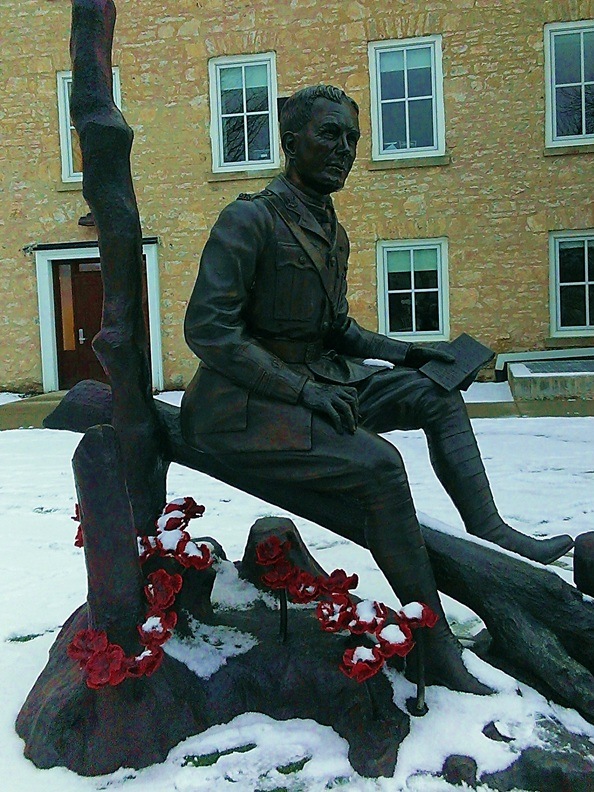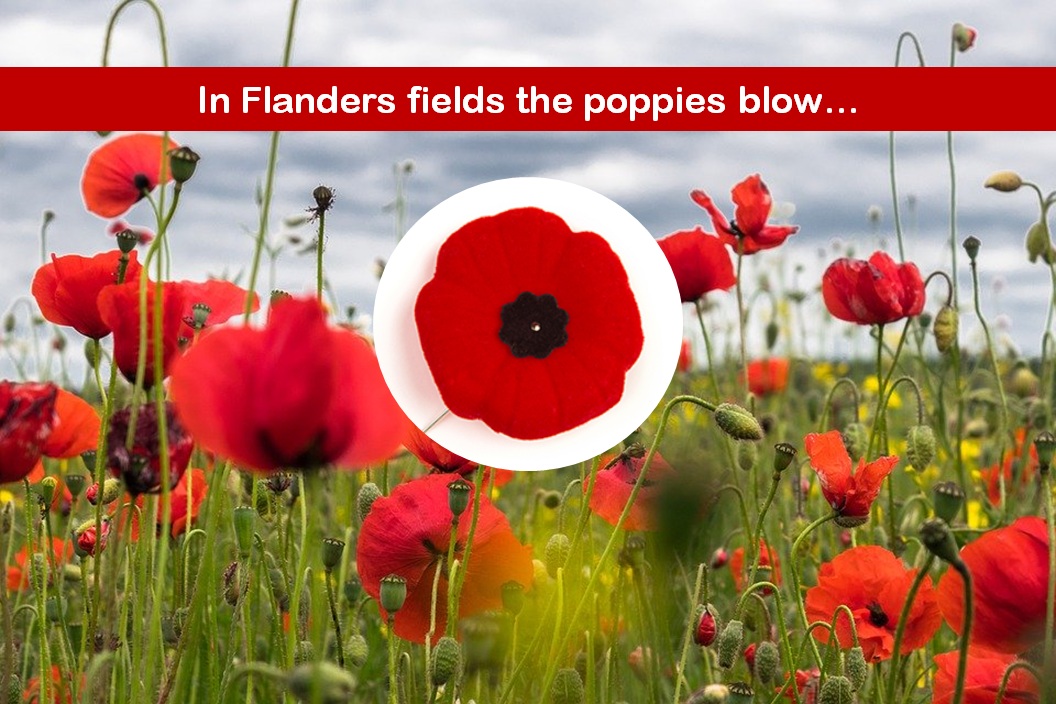Every November, the tradition to wear a red poppy in our lapels continues to help the new generations to understand and analyze that freedom that they almost take for granted, was hard fought by brave Canadians sons.
No other poem described that sacrifice with more eloquence that “In Flanders Fields” a memorial war poem in the form of a rondeau, (a form of medieval and Renaissance French poetry) written by John McCrae (1872-1918), a Canadian doctor and poet from Guelph, Ontario, who served in World War I.
McCrae fought in the Second Battle of Ypres in the Flanders region of Belgium, where the German army launched one of the first chemical attacks in the history of war. They attacked French positions north of the Canadians with chlorine gas on April 22, 1915 but were unable to break through the Canadian line, which held for over two weeks. In a letter written to his mother, McCrae described the battle as a “nightmare”. He was inspired to write it on May 3, 1915, after presiding over the funeral of friend and fellow soldier Lieutenant Alexis Helmer, who died in the Second Battle of Ypres.
“In Flanders Fields” was first published on December 8 of that year in the London magazine Punch and became one of the most quoted poems from the war.
As a result of its immediate popularity, parts of the poem were used in efforts and appeals to recruit soldiers and raise money selling war bonds. Its references to the red poppies that grew over the graves of fallen soldiers resulted in the remembrance poppy becoming one of the world’s most recognized memorial symbols for soldiers who have died in the conflict. The poem and poppy are prominent Remembrance Day symbols throughout the Commonwealth of Nations, particularly in Canada, where “In Flanders Fields” is one of the nation’s best-known literary works. The poem is also widely known in the United States, where it is associated with Veterans Day and Memorial Day.
 John McCrae monument in Guelph
John McCrae monument in Guelph
In Flanders Fields
By John McCrae
- In Flanders fields the poppies blow
- Between the crosses, row on row,
- That mark our place; and in the sky
- The larks, still bravely singing, fly
- Scarce heard amid the guns below.
- We are the Dead. Short days ago.
- We lived, felt dawn, saw sunset glow,
- Loved and were loved, and now we lie
- In Flanders fields.
- Take up our quarrel with the foe:
- To you from failing hands we throw
- The torch; be yours to hold it high.
- If ye break faith with us who die
- We shall not sleep, though poppies grow
- In Flanders fields.
















